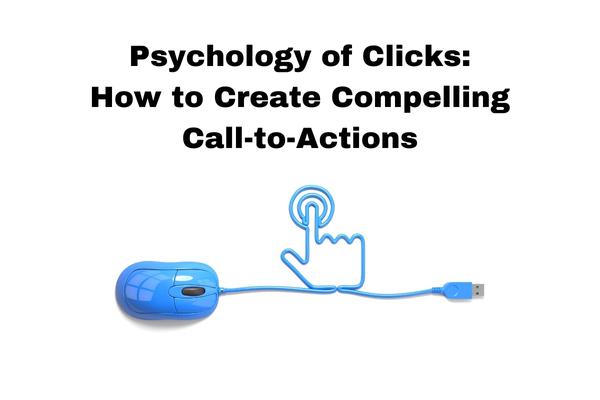Voice search is vast and becoming more popular with time.
Do you know how searchers are finding your business online?
Chances are, they’re using voice search. In fact, it’s estimated that there are 1 billion voice searches monthly, and mobile voice searches are thrice more likely to be locally focused!

What Is Voice Search?
In case you’ve never tried it, voice searches happen when a smartphone or person speaks to the device they’re using to look for a specific topic or business.
For instance, if I’m driving home and that I want to seek out a restaurant, I can’t take my attention off the road long enough to unlock my screen, open Google searches, and sort “restaurant.” Instead, I’ll open a voice search and say “where can I get food?” or “how far is the best restaurant near me?”
When we use voice search, we’re more likely to use a conversational tone than a short phrase in the way we’d type out a text search.
We’ve explained the difference between text search and voice search before as the difference between typing “restaurant near me” on a computer and asking my phone “who delivers food late at night?”
Why Should Local Businesses Optimize for Voice Search?
The use of voice search is popular and it’s only gaining popularity, especially with teens.
It’s easier to use voice search because you do not need to type, and when using smart speakers like Google Home, you tend to receive one account your search, which suggests that you simply do not have to comb through search results.
And, although the mobile search has been appropriated, voice search is not just for smartphones and other mobile devices.
Consumers can use voice search on their laptops, tablets, and PCs, too. meaning we will just about use voice regardless of what device we’re on, and that is convenient (which is perhaps an outsized part of why voice search is so popular).
Besides, everyone’s doing it:
- Northstar Research found that 55 percent of teens use voice search a day
- Forty percent of adults use voice search a day
- There are quite 33 million voice-first devices (like smart speakers) in circulation
- Twenty percent of Google searches are voice searches
- Voice searches on Google increased by 35 times between 2008 and 2016
- Twenty-five percent of all Bing searches are voice searches
This means that voice search optimization should be a neighborhood of your local search marketing strategy if you would like to draw in on-the-go, nearby customers who are checking out your product or service on their smartphones.
As you are making improvements, you ought to confirm that your website’s structured data (often called schema) is optimized also.
Structured data is information about your business that’s hidden in your website’s source code. Although this data can’t be seen by website visitors, it is a crucial part of optimizing for voice search.
How to Optimize for Voice Search
The important thing to understand about optimizing for voice search is that in order for your business to appear in search results, the search engine must think your business is a good match for the search query. (Search engines only want to present searchers the most effective, most relevant results for their queries.)
According to Google’s local search document, Google determines whether your business could be a good match for searches by taking into consideration three things for each and every search:
- Prominence
Prominence has to do with how well-known your business is. Think about the number of reviews you’ve also the star rating, inbound links, and amount of directory listings.
- Distance
Your business will have a much better chance of ranking high in local searches if you’re located near where the searcher is searching.
Never underestimate the ability of consistency in your business’s citation information (name, address, and phone number). If you wish to appear up for nearby searches, check out our post on the importance of citations for local businesses.
40 percent of voice searchers are trying to find directions, so ensure that your name and address are consistent and proper across directories.
- Relevance
If your business is prominent and you’re in close proximity to the searcher, the only thing left to do is be relevant to the search query.
This is where your voice search optimization will come into play. you’ll need to give search engines the knowledge they need to know so that they understand when your business is relevant for certain voice search terms.
Long-Tail Keyword Research
As we mentioned before, voice search often involves longer spoken phrases. “Find me a nice restaurant nearby” instead of just “restaurant.”
These long phrases are called “long-tail keywords.”
In order to optimize for voice search, you’ll need to research long-tail keywords related to your industry and location.
Using some keyword tools, you’ll learn which terms consumers are using to seek businesses like yours.
For instance, if you own a salon in Kanpur, you would possibly search Ubersuggest for “Pedicure Kanpur” and find that users are using voice search to ask “Where am I able to get a pedicure with fish in Kanpur?”
Once you know what your long-tail keywords are, you can add them to your website’s content.
But remember that voice search usually uses more natural language than text searches, therefore the long-tail keywords also will have to be compelled to be natural on your website.
Another voice search optimization tactic that comes with long-tail keywords and natural language is to answer questions your customers might pose. When a searcher uses voice to ask a query and your website’s content answers that question, you’ll be more likely to appear in the search results for their query.
You could answer questions in blog content or an FAQ section on your website in order that search engines can find your business when consumers use voice search to ask questions associated with your industry.
But, as always, don’t just optimize for search engines. ensure to tailor your content to the people who are using the search engines to seek out your business. Use natural language in posts and FAQ sections to make sure humans can understand your content.
Need Help With Keyword Research?
Abnoq is the top digital marketing agency in India, with great experience in voice search. We understand how voice search intersect to create a powerful strategy that generates leads and converts them into customers.
Click here, to find out how we can help your business with voice search.




